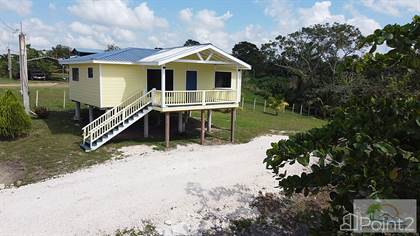Introduction:
Real Estate Belize, an ever-evolving sector, is a cornerstone of global economies and an integral part of individuals’ lives. From residential properties to commercial spaces, the real estate market is diverse and dynamic, influenced by a myriad of factors ranging from economic indicators to societal trends. In this article, we will explore the current landscape of real estate, highlighting key trends, challenges, and opportunities.
- Technology Reshaping the Industry:
In recent years, technology has played a transformative role in the real estate sector. The advent of virtual reality (VR) and augmented reality (AR) has revolutionized property viewings, allowing potential buyers to explore homes and spaces remotely. Additionally, artificial intelligence (AI) is being used to streamline property searches, providing personalized recommendations based on individual preferences.
Blockchain technology has also made its mark in real estate transactions, introducing transparency and security in property dealings through smart contracts. These innovations are not only enhancing the efficiency of the industry but also providing a more seamless experience for buyers, sellers, and real estate professionals.
- Rise of Sustainable and Smart Buildings:
As environmental concerns take center stage globally, the real estate industry is responding by embracing sustainability. Green buildings, designed to be energy-efficient and environmentally friendly, are gaining popularity. Investors and homeowners alike are recognizing the long-term benefits of reduced energy consumption and lower environmental impact.
Moreover, the concept of smart buildings, equipped with advanced technologies for automation and energy management, is gaining traction. These buildings enhance the quality of living and working spaces while contributing to energy conservation.
- Shifts in Urbanization Patterns:
Urbanization trends are constantly evolving, influencing the demand for various types of real estate. Recent years have seen a rise in mixed-use developments, where residential, commercial, and recreational spaces coexist. This shift reflects a desire for more integrated and walkable communities, where residents can live, work, and play in close proximity.
Simultaneously, the ongoing remote work revolution has altered the dynamics of urban and suburban living. With more people working from home, there is a growing demand for homes with dedicated office spaces and amenities that support a flexible lifestyle.
- Challenges in Affordability:
One persistent challenge in the real estate sector is the issue of affordability. Rapidly rising property prices in some regions have made it increasingly difficult for individuals, especially first-time homebuyers, to enter the market. Policymakers and industry stakeholders are grappling with the task of finding sustainable solutions to address this challenge and ensure that housing remains accessible for a broad spectrum of the population.
- Global Economic Impact:
The real estate market is intricately tied to economic conditions. The aftermath of global events, such as the COVID-19 pandemic, has had a profound impact on real estate trends. While some markets experienced a temporary slowdown, others saw increased demand for suburban and rural properties as remote work became the norm. Understanding the broader economic context is crucial for both investors and industry professionals to make informed decisions.
Conclusion:
The real estate sector continues to be a dynamic and multifaceted industry, shaped by technological advancements, societal changes, and economic fluctuations. Embracing innovation, sustainability, and adaptability will be key for stakeholders looking to navigate the evolving landscape successfully. Whether buying a home, investing in commercial properties, or developing sustainable communities, staying informed about current trends and embracing change will be essential in realizing the full potential of the real estate market.





More Stories
Trader Joe’s: The Unique Grocery Store That Captures Hearts and Taste Buds
Understanding Finance: An Overview of Key Concepts and Principles
The Role of an SEO Specialist: Driving Online Visibility and Success